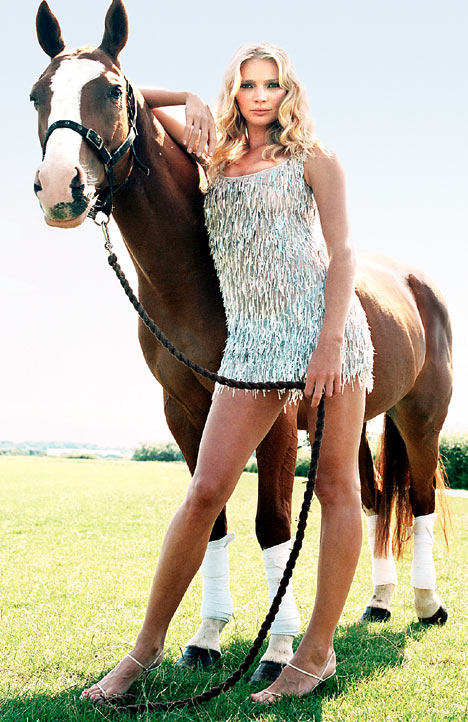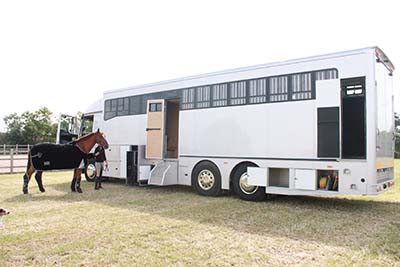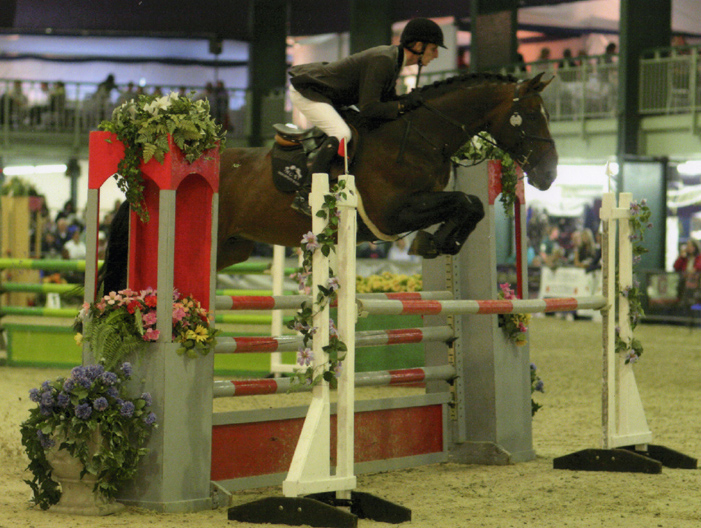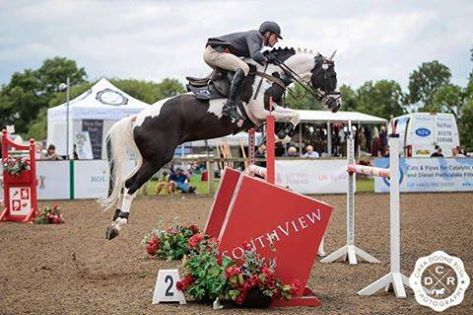Cartoon Horses - Spirit
Spirit: Stallion of the Cimarron is a 2002 American animated film that was released by DreamWorks. It follows the adventures of a young Kiger mustang stallion living in the 19th century wild west. The film, written by John Fusco and directed by Lorna Cook and Kelly Asbury, was nominated for the Academy Award for Best Animated Feature. In contrast to the way animals are portrayed in an anthropomorphic style in other animated features, Spirit and his fellow horses communicate with each other through sounds and facial expressions. Spirit's thoughts are narrated by his voice actor Matt DamonThe film starts with a brief introduction featuring a bald eagle gliding over the homeland of the mustangs, which resembles several western US National Parks. There is then a scene showing the birth of a Dun Kiger Mustang, Spirit (voiced in his narrations by Matt Damon). Spirit soon grows into a stallion, and assumes the role of leader of the herd, whose duty it is to keep the herd safe. This is demonstrated when he saves two foals from a mountain lion.
Spirit is a courageous leader, but has a serious mischievous streak and a high sense of curiosity. Spotting a camp one night not far from his herd, the stallion is unable to control his curiosity and moves towards it, as he's never seen humans before. To Spirit's surprise, the humans (possibly wranglers) are vicious. After a long chase, he is captured and taken to a US cavalry post. During this time in the film, the army is fighting the Indian Wars and taking over the soon-to-be western United States. There he encounters, "The Colonel" (voiced by James Cromwell). The Colonel attempts to tame the mustang, but Spirit manages to outwit all who attempt to ride him, eventually leading to the Colonel's ordering him to be tied to a post for three days and nights without any food or water. During this time, a Lakota named Little Creek (voiced by Daniel Studi) is also brought into the fort and held captive, given the same post treatment as Spirit himself. Through the nights and days a sense of friendship begins to exist between them. At last, the Colonel decides it is time to break the weakened Spirit, who still manages to put up a fight, but is eventually forced to give in and made to walk around the corral while the triumphant Colonel proceeds, rather pompously, to state that this situation is a metaphor of how anything can be conquered, including the Wild West, using the breaking of the seemingly unconquerable Spirit as an example. While he does so, Spirit finally decides that enough is enough, and, taking the unwary Colonel by surprise, manages to throw him, to the delight of all the other captured horses. The Colonel, humiliated and enraged, snatches a gun and prepares to shoot Spirit, missing thanks to a timely intervention from Little Creek, whose friends have managed to throw him a knife with which to cut himself free. Through a series of events, Little Creek and Spirit, along with several army horses, then escape the post. Little Creek's own paint mare, Rain, meets them, along with other Indians who loosely capture Spirit.
After returning to the Lakota village, Little Creek ties Spirit and Rain together, much to Spirit's dismay. Rain willingly shows Spirit her world. Spirit begins to understand their ways and falls in love with the mare. His affections for Rain, however, does not soften his yearning to be free. At the end of their time together Little Creek decides that Spirit can- and indeed should, never be tamed and frees him. As Spirit asks Rain to come with him to his herd, a Cavalry Regiment led by the Colonel attacks the Lakota village, killing many innocent men, women, children, infants, and elderly citizens. Rain is shot by the Colonel, knocking her into the river while Spirit knocks the Colonel off his horse, saving Little Creek's life. Spirit dives into the river to try to rescue Rain, but is unsuccessful and they both plummet over a waterfall. Having both survived, Spirit comforts Rain on the riverbed as she is dying from her gun wound until cavalry scouts tear him away. After finding Rain critically injured just as Spirit is being led away, Little Creek vows to free the mustang once and for all in accordance with his life-debt; and follows the men after tending to his own mare.
Spirit and other stolen horses are put on a train and taken to the work site of the Transcontinental Railroad where they are put to work pulling a locomotive engine up a mountain when attempts to tunnel have failed even with explosives. Spirit realizes that if the track extends along its present course it will infringe on his homeland. Spirit breaks free from the steam engine and causes it to fall down the steep hill where it collides with another locomotive, causing a boiler explosion which starts the camp and woods on fire. Spirit flees in triumph but the chain put round his neck earlier catches on a log as he leaps over it and renders him trapped. Little Creek appears, saves Spirit from the wildfire, and takes him to safety. The next morning, Colonel and his men find Spirit and Little Creek, who are overjoyed to see one another again. A climatic chase scene ensues on winding rock passages that lead to a canyon where the two again outsmart the Army in a variety of ways. However, in order to flee from the Colonel and his two remaining men, Spirit and Little Creek are forced to flee upwards onto a plateau of rock where their only path of descent is cut off by the three soldiers. The only way out is a long leap across a very steep canyon drop. When faced with it, Little Creek whispers 'Oh no,' contradicted by Spirit's mental retort of 'Oh yes,' as he decides to attempt the jump rather than face certain death at the hands of the Colonel. The pair barely make it across the jump and are just beginning to celebrate when they see, across the jump, the Colonel and his men facing them. One man pulls out a gun and prepares to shoot them, but the Colonel, impressed by the bravery of Spirit and Little Creek, prevents him from doing so and exchanges a nod of respect with Spirit before they part.
Spirit races back to the rebuilt Lakota village with Little Creek. Spirit finds Rain still alive, nursed back to health by the Indians. Little Creek decides to name the Kiger mustang "Spirit-Who-Could-Not-Be-Broken". Little Creek, knowing it's for the best, sets Spirit and Rain free. Little Creek hugs Spirit before he and Rain run off, and Spirit notes it was a tough goodbye. Eventually, the two horses joyfully meet up with Spirit's own herd, including his mother. Viewers then see the eagle as he flies up into clouds shaped like horses.
Cast
Matt Damon as Spirit: A Kiger Mustang. In the outset of the film, he is the leader of the Cimarron herd until he gets captured by an army of soldiers. Throughout his captivity, he is continually struggling to break free. He undergoes several adventures from contending with Army soldiers to meeting and befriending Indians and falling in love with a beautiful paint mare, Rain, on his quest to get home. He is heard throughout the narrations of the film. He is the main protagonist.
James Cromwell as The Colonel: The leader of a battalion of Army soldiers. The Colonel plans to conquer the Indians. He makes numerous unsuccessful attempts to tame Spirit, and when Spirit escapes, he and his soldiers search for him. He is not necessarily evil, but he is a stern and occasionally cruel man fiercely loyal to Military Code. In the climax of the film, he and his soldiers pursue Spirit and Little Creek, but in the end he is honorable enough to recognize their courage, letting them go free once and for all. He is based on Colonel Custer. He is the main antagonist.
Daniel Studi as Little Creek: a Lakota who befriends Spirit and is a kind young boy who sets Spirit and his horse Rain free. He was animated by lead animator Pres Romanillos. He is the deuteragonist.
Chopper Bernet as Sgt. Adams
Jeff LeBeau as Murphy, Railroad Foreman
Richard McGonagle as Bill
Matt Levin as Joe
Robert Cait as Jake
Charles Napier as Roy
Zahn McClarnon as Little Creek's Friend
Michael Horse as Little Creek's Friend
Donald Fullilove as Train Pull Foreman
Spirit: Stallion of the Cimarron was made over the course of four years using a conscious blend of traditional hand-drawn animation and computer animation in a technique the film's creators dubbed "tradigital animation." DreamWorks purchased a horse as the model for Spirit and brought the horse to the animation studio in Glendale, California for the animators to study. In the sound department, recordings of real horses were used for the sounds of the many horse characters' hoof beats as well as their vocalizations. None of the animal characters in the film speak English beyond occasional reflective narration from the protagonist mustang (voice of Matt Damon). Many of the animators who worked on Spirit also worked on Shrek 2, and their influence can be seen in the horses in that film, such as Prince Charming's horse from the opening sequence and Donkey's horse form. The film was also referenced in the Disney animated feature Home on the Range, where a character refers to Buck as "Stallion of the Cim-moron".
Writer John Fusco, best known for his work in the Western and Native American genres, was hired by Dreamworks to create an original screenplay based on an idea by Jeffrey Katzenberg. Fusco began by writing and submitting a novella to the studio, and then adapted his own work into screenplay format. He remained on the project as the main writer over the course of four years, working closely with Katzenberg, the directors, and artists.
Makers of the film took a trip to the western United States to view scenic places that they could use as inspiration for locations in the film. The homeland of the mustangs and Lakotas is based on Glacier National Park, Yellowstone National Park, Yosemite National Park, and the Grand Teton mountain range. The cavalry outpost appears to be located at Monument Valley. The canyon of the climax looks like Bryce Canyon and Grand Canyon.
The instrumental score was composed by Hans Zimmer, with songs from Bryan Adams. The opening theme song for the film, "Here I Am" was written by Bryan Adams, Gretchen Peters, and Hans Zimmer. It was produced by Jimmy Jam and Terry Lewis. Another song, which was not included in the film itself (although it can be heard in the ending credits), is "Don't Let Go", which was sung by Bryan Adams with Sarah McLachlan on harmonies and piano. It was written by Bryan Adams, Gavin Greenaway, Robert John "Mutt" Lange, and Gretchen Peters. Many of the songs and arrangements are set in the American West, with themes based on love, landscapes, brotherhood, struggles, and journeys. Garth Brooks was originally supposed to write and record songs for the film but the deal fell through.
The film received mostly positive reviews. Based on 126 reviews collected by Rotten Tomatoes, Spirit: Stallion of the Cimarron has an overall "fresh" approval rating of 69%, with a weighted average score of 6.4/10. Top critic, Roger Ebert, said in his review of the film, "Uncluttered by comic supporting characters and cute sidekicks, Spirit is more pure and direct than most of the stories we see in animation -- a fable I suspect younger viewers will strongly identify with."
The film was screened out of competition at the 2002 Cannes Film Festival.
Rain received an honorary registration certificate from the American Paint Horse Association (APHA), which has registered more than 670,000 American Paint Horses to date. She is the first animated horse to be registered by this organization.
When the film opened on Memorial Day Weekend 2002, the film earned $17,770,036 on the Friday-Sunday period, and $23,213,736 through the four-day weekend for a $6,998 average from 3,317 theaters. The film overall opened in fourth place behind Star Wars: Episode II - Attack of the Clones, Spider-Man and Insomnia. In its second weekend, the film retreated 36% to $11,303,814 for a $3,362 average from expanding to 3,362 theaters and finishing in fifth place for the weekend. In its third weekend, the film experienced a good hold of only a 18% slippage to $9,303,808 for a $2,767 average from 3,362 theaters. The film closed on September 12, 2002 after earning $73,280,117 domestically with an additional $49,283,422 overseas for a worldwide total of $122,563,539. Produced on an $80 million budget, the film fell short of it in the US and Canada, but the film has become a moderate box office success worldwide.



Show Jumping | Stallion | Anky Van Grunsven | Electric Bum Hoodie | British Show Jumping Horse T-Shirts, Hoodies, Custom Horse Shirts and Clothing Pictures



